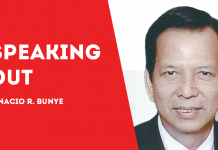
AT THE ROOT of these issues is the tendency to mistake free for valueless. It is an attitude that seeps into relationships, too. Parents, guardians, and breadwinners give their all, often unnoticed, until their children grow up and face similar struggles, finally grasping the depth of their sacrifices.
Similarly, friendships and partnerships thrive on mutual effort and respect. When one party takes the other for granted, the bond begins to erode. Gratitude is the currency that sustains these invisible but vital connections.
Modern privileges highlight this problem even further. Gadgets, apps, and the internet have transformed lives, but they are often wasted on distractions or misinformation instead of being tools for growth. The ease of access obscures the monumental effort behind these innovations, reducing them to mere conveniences rather than transformative resources. It is a glaring reminder that when we do not invest effort or resources into something, its value diminishes in our eyes.
Even the arts and humanities, often consumed freely, suffer from this undervaluation. Music, literature, culture, and visual art enrich our lives, but how often do we support the creators behind them? Piracy and free streaming have made these works accessible but at the cost of the artists’ livelihood.
If we truly cherish cultural treasures, we must support them consciously. The same goes for free education, ayudas, and other benefits—they are only meaningful if we acknowledge their cost and use them responsibly.
The continuing free higher education and ayuda programs reveal a deeper societal dilemma: how do we balance support and empowerment? Aid is necessary in times of crisis, but it must come with pathways to independence. Otherwise, it risks becoming a crutch rather than a stepping stone.
We have seen it before in other countries where welfare systems, poorly managed, fostered long-term dependency. Our country must learn from these examples, ensuring that assistance programs are coupled with opportunities for skill-building, employment, and self-sufficiency.
In the end, the solution lies in a collective shift in mindset. Free does not mean worthless; it means entrusted. Every privilege comes with an obligation to honor and maximize it. Whether it is free education, ayuda, or even the air we breathe, we must recognize the effort behind it and rise to meet its potential. Entitlement is easy; gratitude and responsibility are harder—but they are what transform benefits into blessings.
If we fail to instill this mindset, we risk breeding a culture of complacency and vagrancy. But if we succeed, we can create a society that values effort, respects opportunity, and uplifts everyone. Freely given does not have to mean barely appreciated. It can mean deeply valued, wisely used, and genuinely repaid. After all, the greatest things in life—love, freedom, opportunity—are gifts, but they are never truly free.
***
Doc H fondly describes himself as a “student of and for life” who, like many others, aspires to a life-giving and why-driven world grounded in social justice and the pursuit of happiness. His views do not necessarily reflect those of the institutions he is employed or connected with./PN







